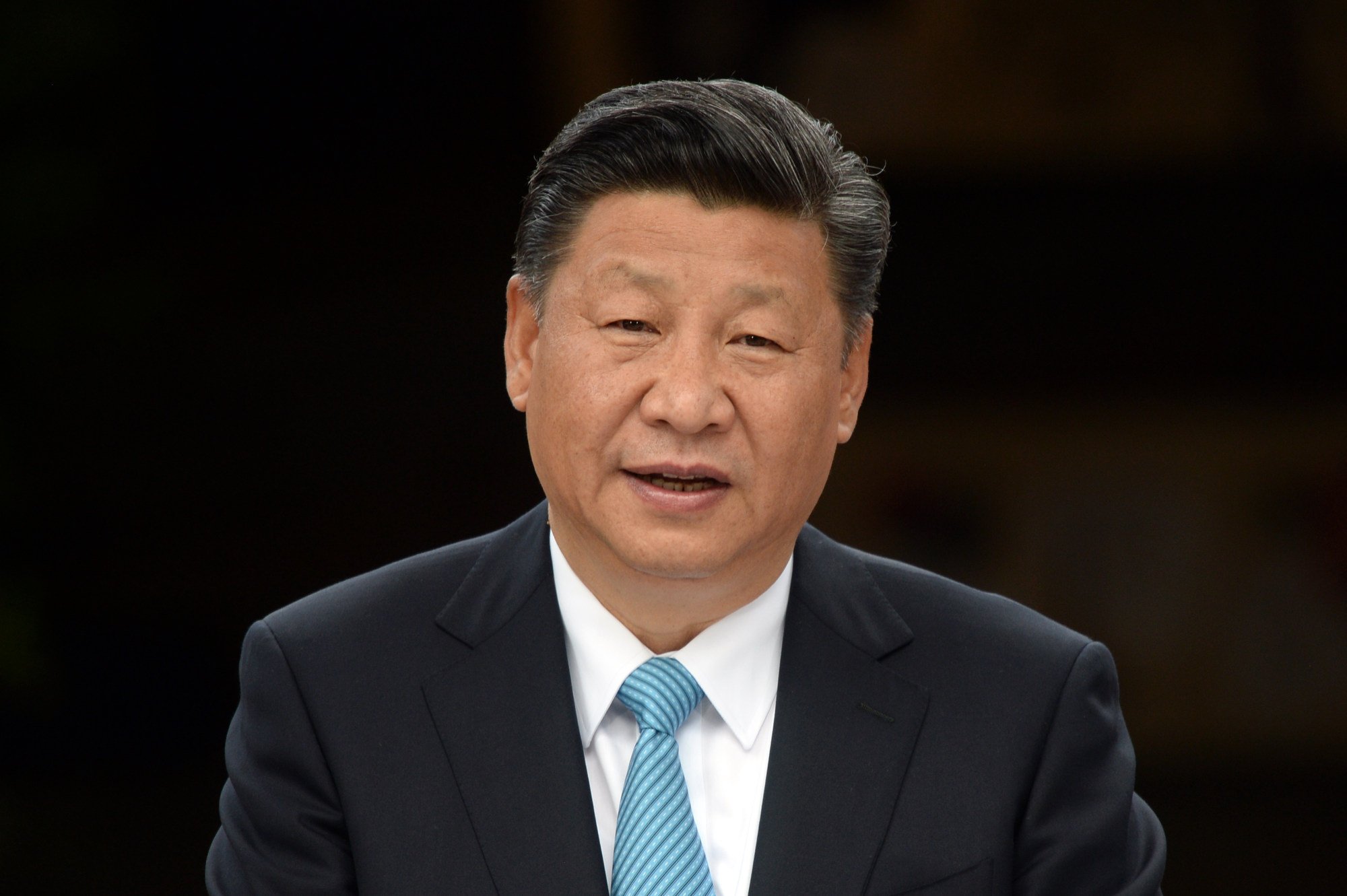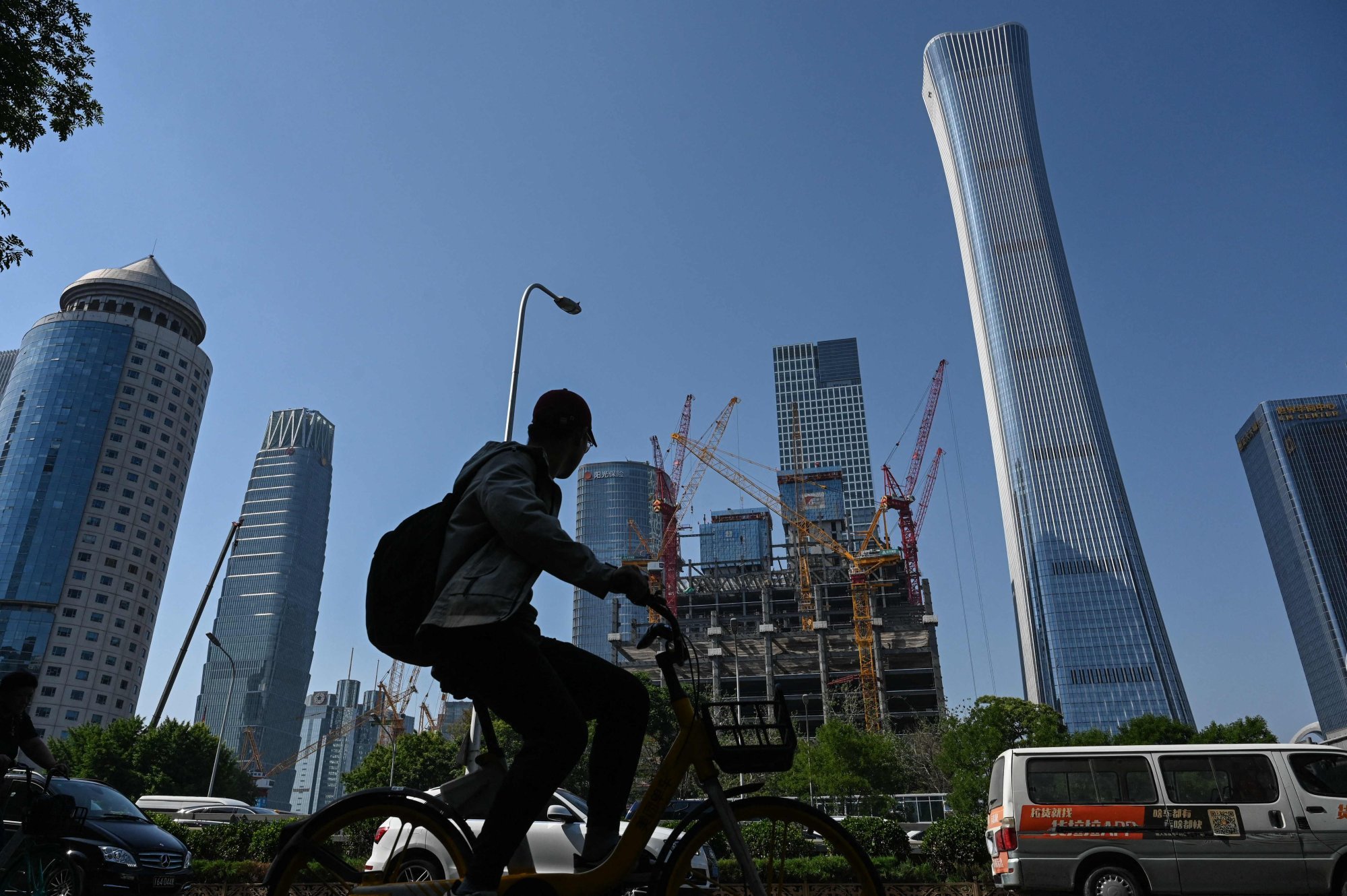
China signals economy is priority as Xi Jinping meets business leaders ahead of key party meeting
- President calls for deepened reforms to address economic woes and says country should pursue ‘goal- and problem-oriented’ approach
- He was addressing a meeting in Jinan attended by entrepreneurs including Fung Group chairman Victor Fung and economists
“We must resolutely eliminate the ideological concepts and institutional shortcomings that hinder the advancement of Chinese-style modernisation,” Xi told the meeting in Jinan, during a visit to the eastern province of Shandong on Thursday.
“We must pursue an approach that is both goal- and problem-oriented to solve problems … focus on deep-seated institutional obstacles and structural issues.”
Describing reform as the driving force for development, Xi said China’s basic economic system must be upheld and it must strive to build a high-level socialist market economic system.

“We must build a system that can push forward high-quality development, support comprehensive innovation and an integrated urban and rural development. Also it must be able to further boost productive forces and enhance social vitality,” he said.
“When promoting the reform of the economic system, we must start from practical needs and focus on the most urgent matters,” Xi said. “We must deepen theoretical innovation and promote institutional innovation.”
A protracted property sector downturn, stubbornly weak internal demand, mounting local government debt, rising trade barriers and deeply ingrained structural issues threaten to jam the gears of China’s recovery and growth.
The country is also facing more external pressure, which is challenging Beijing’s annual growth target of around 5 per cent and its long-term goals.
In addition to expanding its list of tech curbs, the United States will impose tariffs on made-in-China products including electric vehicles, lithium ion batteries and solar panels over concerns about industrial overcapacity. Meanwhile, the European Union, the second-largest destination for China’s exports, has stepped up its anti-subsidy investigation into Chinese EVs.
Thursday’s meeting in Jinan was attended by state-owned enterprise chiefs and executives from leading private firms.
The speakers included entrepreneurs such as Victor Fung, chairman of Hong Kong supply chain management conglomerate Fung Group, Anta Sports chairman Ding Shizhong, Bosch China president David Xu Daquan, and economists Zhou Qiren from Peking University, Zhang Bin of the Chinese Academy of Social Sciences, and Huang Hanquan, head of the Chinese Academy of Macroeconomic Research.
They offered suggestions which could make an appearance on the agenda during July’s plenum, including that Hong Kong be better integrated into China’s development and urban-rural plans, according to a report from official news agency Xinhua.
Reform of the country’s electricity system was also suggested, along with more development of venture capital, upgrading traditional industries, better governance of private enterprises and improving the business environment for foreign firms.

Market confidence has not yet fully recovered in China since the pandemic, especially for foreign and private investors.
In its annual position paper released on Wednesday, the British Chamber of Commerce in China said British firms believe Beijing needs to take more action on long-standing market access issues and implement “meaningful” regulatory reforms to boost confidence.
The EU chamber’s annual business confidence survey of European firms operating in China also painted a bleak economic picture, with never-before-seen levels of pessimism “setting a negative cycle in motion”.
Only 15 per cent of respondents – a record-low proportion of companies in the poll – said China was still their top investment destination, according to the survey results released earlier this month. Just 13 per cent – another record low – still saw it as their top destination in the future.
Zhu Jiangnan, an associate professor with the University of Hong Kong’s Department of Politics and Public Administration, said the Jinan meeting “signals the central government’s foremost attention on economy”.
“The meeting solicited opinions and suggestions from various sectors, especially entrepreneurs, for stimulating the economy. There is a lot to watch and see what will happen next.”
An academic based in Beijing, who spoke on condition of anonymity due to the sensitivity of the issue, noted that Xi was “not known in the past for having frequent interactions with business leaders”.
“But in recent months he has clearly stepped up the communications,” the academic said. “[However] Xi still stressed the party’s leadership, Marxism and socialism in his speech … so I’m not expecting anything [to come that will] make any meaningful difference to the status quo.”


